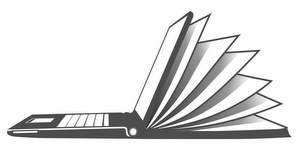 In a way, vocabulary is one of the hardest aspects of learning French, because there’s just so much of it. Between synonyms, jargon, and neologisms – not to mention idiomatic expressions! – learning all the vocabulary you need can seem like an endless process. And to be honest, it is. You’ll never learn all French vocabulary – even native speakers have to look up words sometimes. But there are ways that you can specifically work on increasing the number of words you know.
In a way, vocabulary is one of the hardest aspects of learning French, because there’s just so much of it. Between synonyms, jargon, and neologisms – not to mention idiomatic expressions! – learning all the vocabulary you need can seem like an endless process. And to be honest, it is. You’ll never learn all French vocabulary – even native speakers have to look up words sometimes. But there are ways that you can specifically work on increasing the number of words you know.
Vocabulary lessons
First things first: vocabulary lessons typically consist of not much more than lists of themed words (colors, clothing, stores, etc), and reading through them over and over isn’t a very efficient way to learn. Practicing recall is much better, as is learning vocabulary in context, so try creating a sentence or two with each word, or even writing a story. This has the added benefit of putting your grammar skills to work at the same time, and if you can get a native speaker to record your text, you can work on your listening comprehension as well. Win – win – win!
Vocabulary lessons from our Partner site, Lawless French:
Vocabulary in the wild
A more realistic and efficient method of learning vocabulary is to read and listen to French. Exposure to the language as it’s actually written and spoken allows you to discover new words in context, which you can then collect in vocabulary lists, turn into flashcards, or add to your favorite app.
Get started by reading our bilingual articles and checking out our recommended French listening links. Also, try reading French newspapers and watching TV / movies to be exposed to a wide variety of French and more vocabulary than you can shake a baguette at. And try our weekly writing challenges – you can look up anything you don’t know in the dictionary, and add to your growing list of new words.
Managing new vocabulary
When you encounter new words, should you look them up right away or make a list for later? Take a look at Improve your French reading skills for some thoughts on that.
Also, be sure you have access to a good bilingual dictionary – and know how to use it.
Grammar notes
Even when you’re focusing on vocabulary, you can’t forget about grammar:
- Always include a definite or indefinite article with every new noun, so that you learn the gender at the same time.
- Adjectives you encounter might be feminine and/or plural – you also need to learn the default masculine singular form.
- New verbs will typically be conjugated, you’ll want to make a note of their infinitives.
À vous la parole !
What are your top vocab learning tips? Let us know in the comments below.
—–
Thanks for reading! For more French learning tips, follow Kwiziq on Facebook and Kwiziq on Twitter.
C'est vrai que ce n'est pas facile de se souvenir tous les mots français, même si on les a regardés dans le dictionnaire, car si on ne les utilise pas, on les oublie dans un court moment.
Comment peut-on les se souvenir dans notre mémoire? y a t-il la méthode?